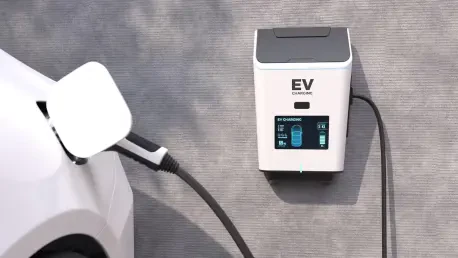The push to develop a comprehensive electric vehicle (EV) charging infrastructure in the United States faces formidable challenges just as EV adoption gains momentum. Despite significant federal funding amounting to $7.5 billion, progress has been noticeably sluggish, with only 384 charging ports established at 68 stations spread across 16 states as of April 2025. This slow pace highlights the complexities inherent in coordinating large-scale infrastructure projects across diverse geographic and regulatory landscapes. One key reason for this sluggish performance is the lack of articulated performance benchmarks, goals, and timelines by the supervising entities. This absence of clarity and strategic direction can lead to inefficiencies, exemplified by broader trends that underscore ongoing administrative hurdles, political resistance, and disputes contributing to the sluggish expansion of the EV charging network.
Legislative Hurdles
A considerable barrier to the advancement of EV charging infrastructure has been legislative actions taken during Donald Trump’s presidency. These included suspending the EV charging initiative altogether and dismantling existing plans, effectively reducing budget allocations and removing essential tax incentives meant to bolster EV sales. Additionally, federal directives to disconnect non-essential EV charging stations have hindered progress, revealing contrasting priorities within the landscape of environmental policy and economic strategy. Such actions have elicited criticism from various quarters, with Senator Jeff Merkley, a Democrat, expressly calling out what he termed a “vast administrative failure” regarding the project’s execution. These political dimensions further amplify the complexity and difficulty in expanding the EV charging network. This situation highlights the need for more consistent, cohesive legislative support that aligns with long-term goals for renewable energy transition.
Legal Disputes and Administrative Challenges
The rollout of the program has been further complicated by legal battles involving California and other states, which have sued the U.S. Transportation Department over the withholding of essential funds. These legal disputes highlight the tension surrounding the deployment of EV infrastructure, as well as the wider dialogue on energy, environmental, and economic policy. The lawsuits aim to unlock these funds, reflecting the urgency and frustration of states eager to speed up the installation of EV charging stations but facing roadblocks due to withheld funding. These legal conflicts highlight the administrative challenges to expanding EV infrastructure, which are worsened by poor coordination among federal, state, and local governments. Successfully navigating these complex disputes and administrative hurdles is key for overcoming current obstacles and ensuring a smooth transition to more widespread adoption of electric vehicles. Grasping the underlying issues is crucial for developing strategies to move forward and ensure the successful implementation of this program.









